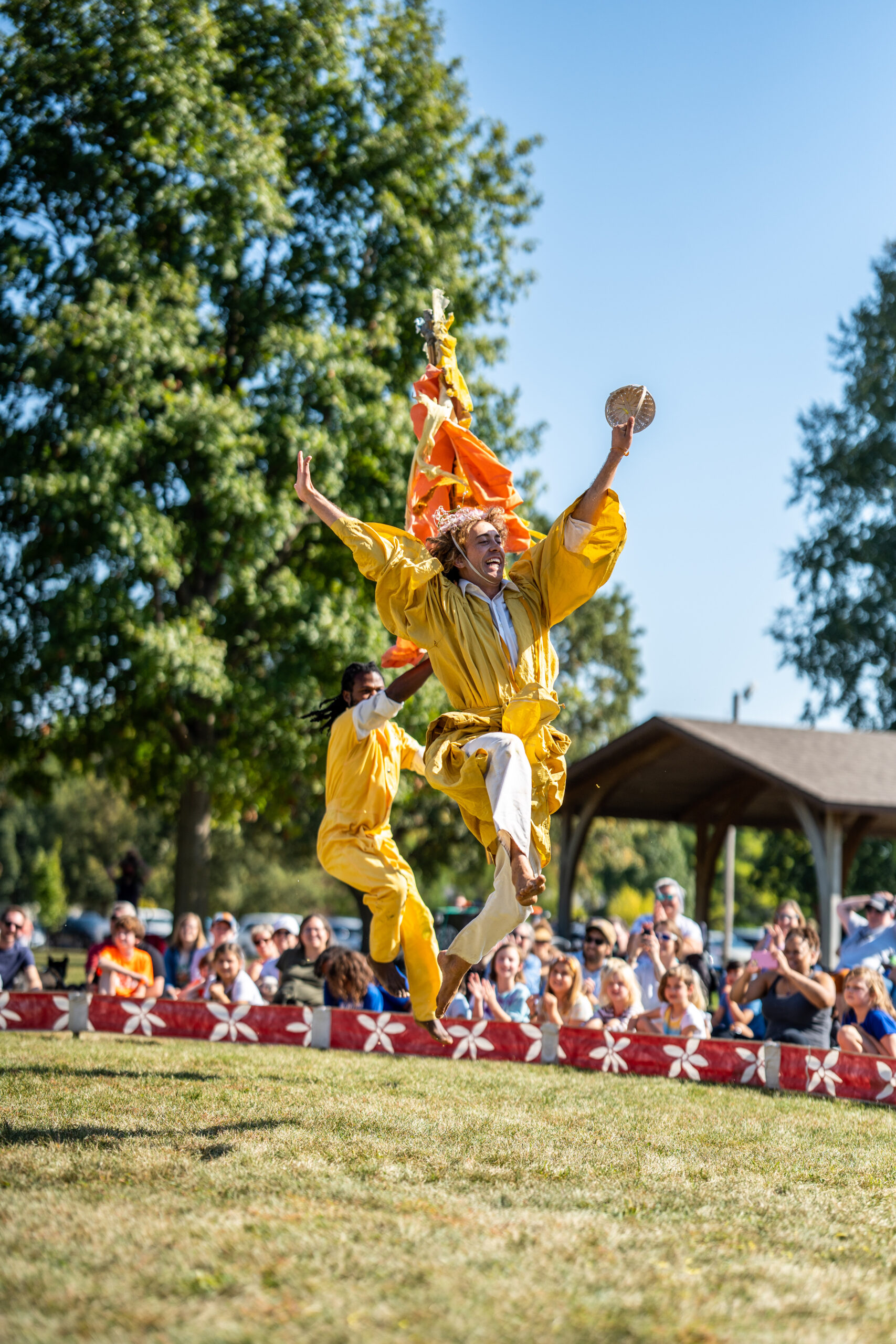In 2002, a group of theater students at the University of Iowa needed a space off campus to perform their original plays. They approached Jim Bell, owner of the Deadwood bar at the time, about using the downtown tavern’s vacant second floor. In exchange for cleaning the space, Bell let them use it for one night. One night turned into many, and the group’s offerings expanded to music shows and pop-up art exhibits.
After that unassuming start, the ad hoc theater collective morphed into Public Space One (aka PS1), Iowa City’s artist-led, community-driven, contemporary art center. Celebrating its 20th anniversary this year, PS1 has grown into a multi-disciplinary organization that houses a broad coalition of artist and activist groups, and provides space and support to experimental artists in various disciplines. The arts center has grown organically over the past two decades, advocating for artists and their community every step of the way.


Local grassroots community-building nonprofit The James Gang was founded around the same time and included some of the same people. Together, they negotiated the use of a space in the basement of the Jefferson Building. During the summer months, they turned the venue over to a handful of artists who could work in the space then install an exhibition afterward. Soon the group started inviting artists from other areas to show their work in salon-style exhibits.
Eventually the University of Iowa, which managed the Jefferson Building, didn’t want the space to be open at night, so PS1 moved to the Wesley Student Center just north of downtown.
The move to the Wesley meant the organization had to pay rent for the first time since its inception. PS1 Program Director Kalmia Strong says that investing in a space was something they were ready to try out. Their first fundraising mission began with the IC Press Co-op, which was called Zenzic Press in its original configuration. A printmaking studio requires infrastructure, Strong says. “It does not lend itself to a space you might get kicked out of at any moment.” A $10,000 Kickstarter campaign was mounted in 2012. The fund drive helped spread the word, and a press was donated. That meant Zenzic and PS1 could use the Kickstarter money for rent, equipment, and supplies.
The success of the Press Co-op drive led PS1 to seek more funding for projects and operating support, from sources such as the Community Foundation of Johnson County and The Iowa Arts Council.
“None of us knew how to write a grant, but we got advice from other folks and it was just sort of learning as we went,” Strong says.
Even though larger grants from established arts organizations are integral to PS1’s ongoing existence, smaller contributions from individual people is core to PS1’s values and helps it remain sustainable.
“People who donate five dollars a month are my favorite, because that’s what they can do, and it’s awesome. It shows that they value what we’re doing and feel part of it,” says Strong. She adds that people also donate time, labor, energy, and ideas.
KALMIA STRONG, PROGRAM DIRECTOR OF PS1“We’re very aware of how growth can make an organization less nimble. We try to be self-critical and make sure to take care of people and make sure they’re safe …”
In 2019, PS1 finally got a home of its own. Strong calls PS1’s acquisition of two Northside properties “random and fortuitous.” The City of Iowa City purchased two historic houses on North Gilbert Street because they didn’t want them to be torn down and/or turned into apartments. They put out a call for organizations to submit proposals to purchase the houses, then provided the money for the down payments. “That was crucial to being able to buy those spaces,” Strong says.
When asked what advice she would give nascent community arts organizations in smaller communities, Strong says, “Space is really crucial to what we do. My advice is to find a space. In the end it doesn’t really matter what kind of space it is. And it doesn’t even have to be a space you own, it could be a group room at the public library.”
PS1 has always taken what Strong calls a “bottom up” approach, which means listening to community stakeholders. “Getting people together and seeing what the community wants is the key thing. And having a space where people can gather helps make that happen,” she says.
In 2021 PS1 purchased the historic Close Mansion, which is now home to the Media Arts Co-op (MAC), the Center for Afrofuturist Studies (CAS), a residency and visiting artist program for artists of color, and the LGBTQ Iowa Archives and Library (LIAL). The Close also houses exhibitions and artists’ residencies.
Madde Hoberg, director of LIAL, says, “It felt like a very natural fit to work with PS1 and house our library in the Close House once they acquired that space. PS1 does a lot of similar work around making art accessible: skill-building workshops, offering community space, etc.” Remaining autonomous is important to LIAL. “Being an independent entity allows us to avoid some of the regulations and limitations that many public and academic institutions are facing currently (I’m thinking here of the public libraries who have been attacked for housing LGBTQ books, hosting drag storytimes, etc.),” says Hoberg. LIAL’s association with PS1 “gives us the autonomy needed to provide a fully supportive environment for the queer and trans community.“
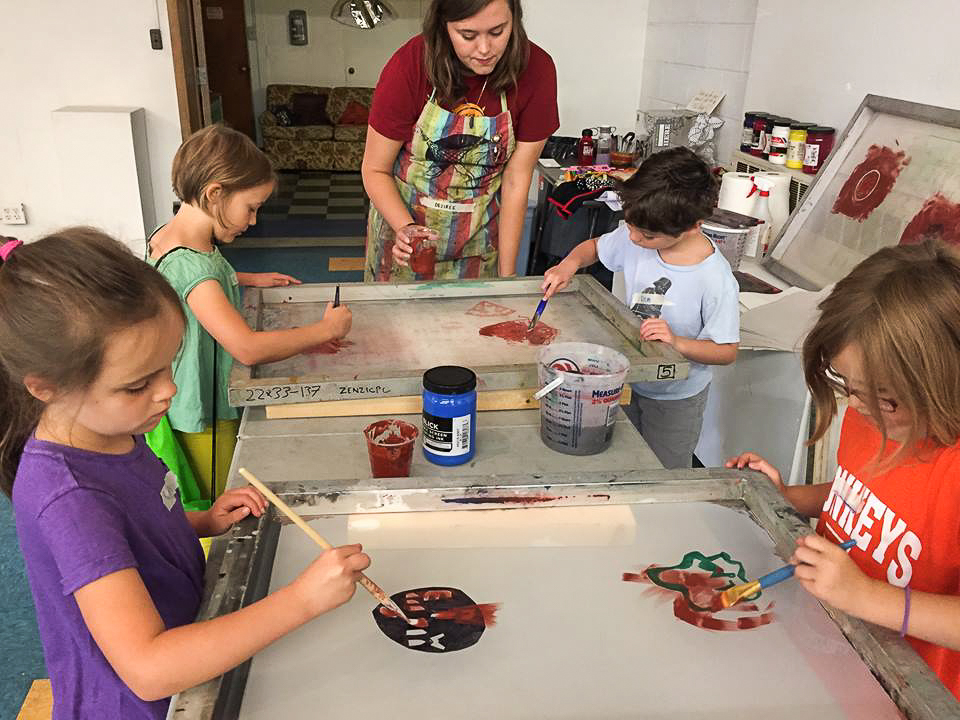
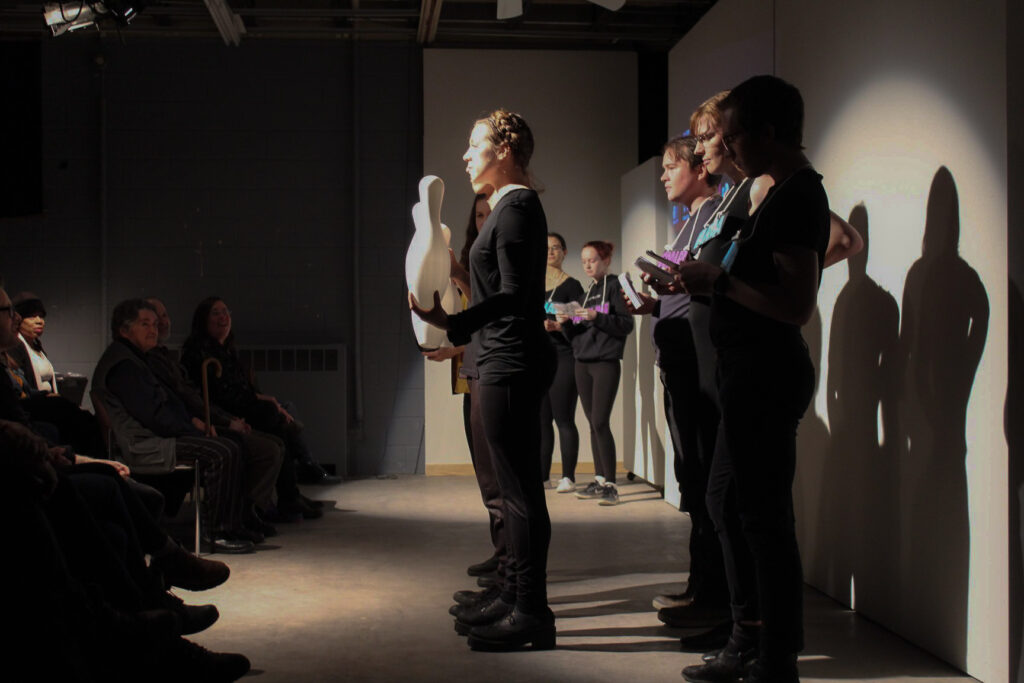
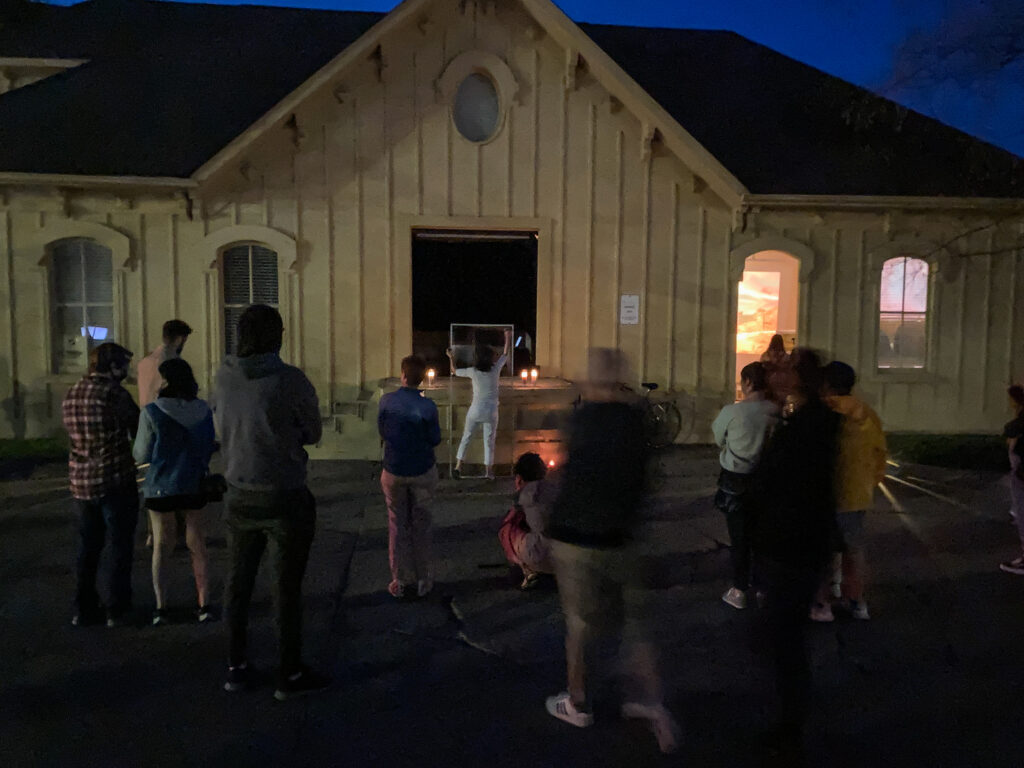
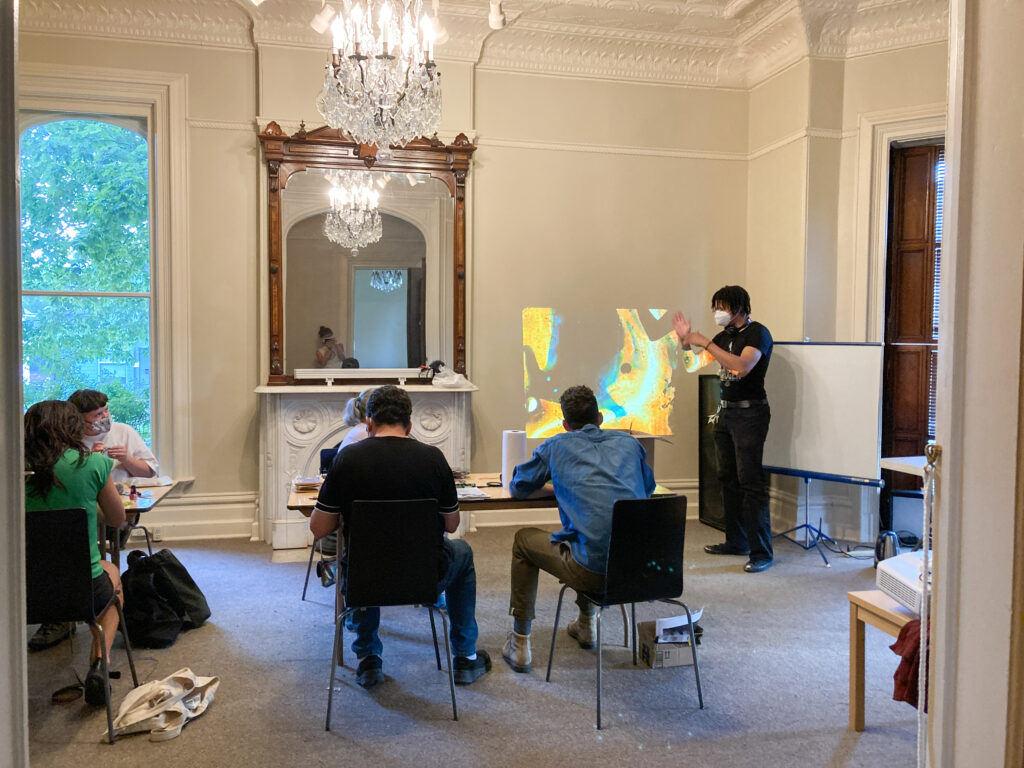
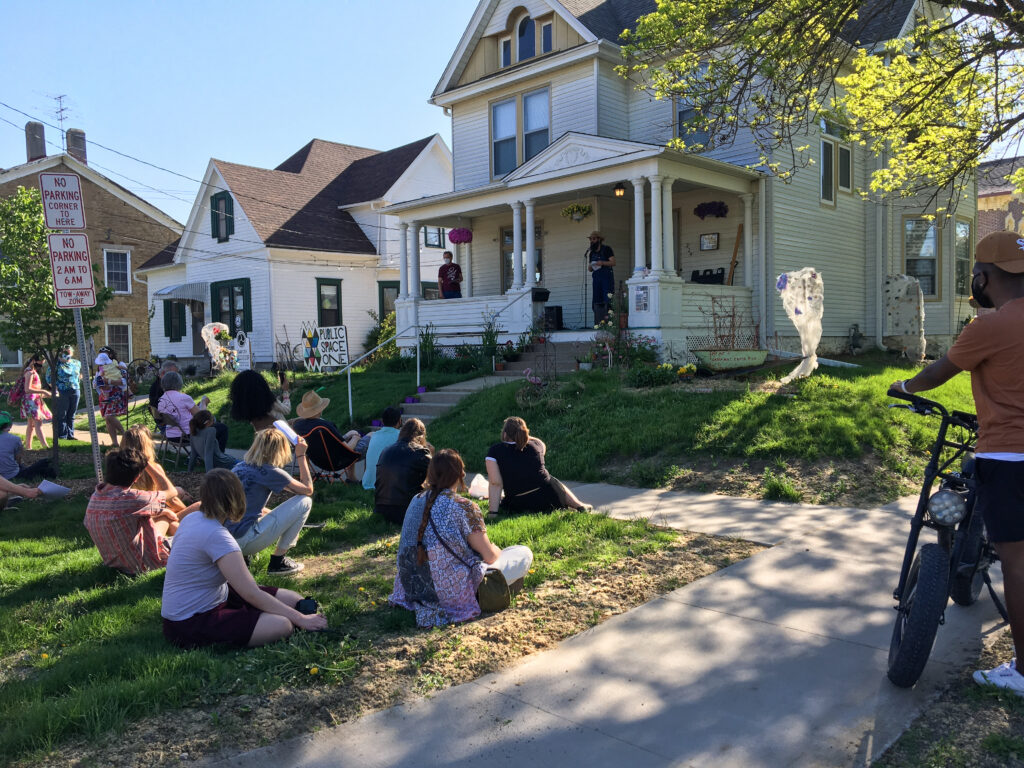
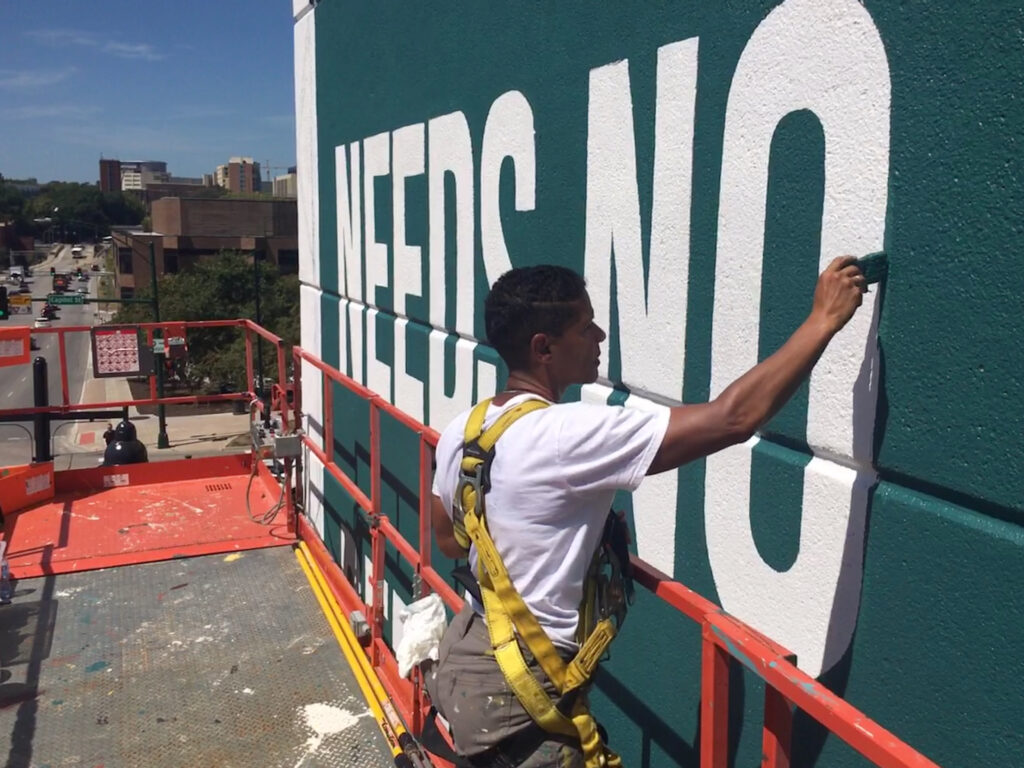


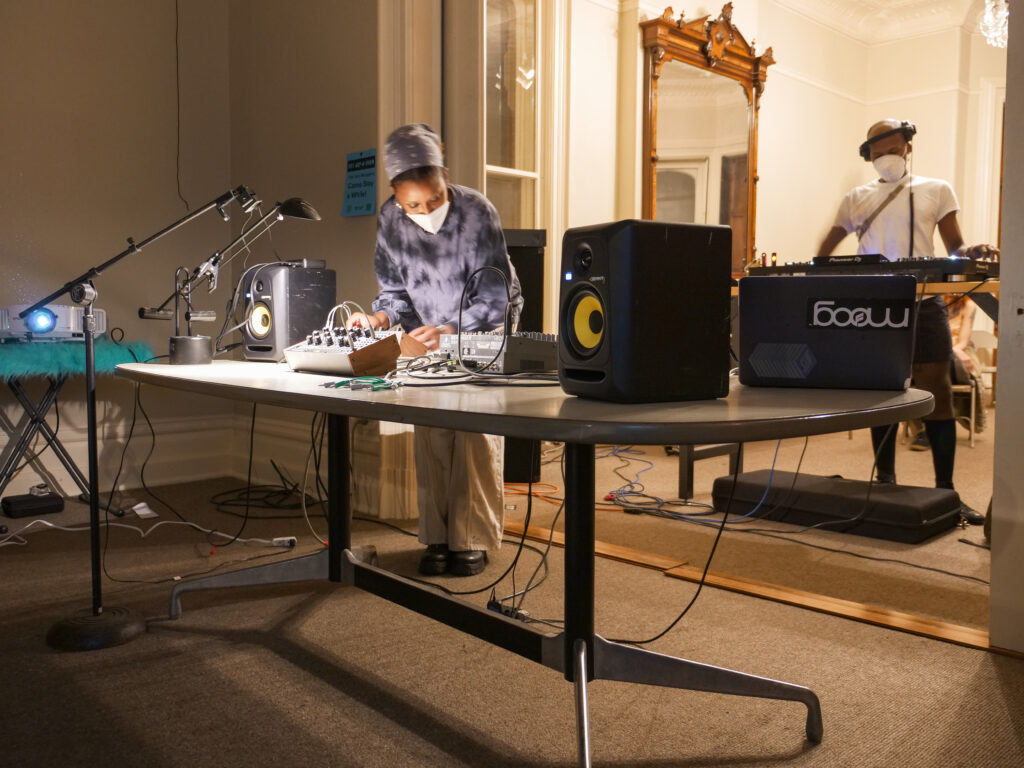
PS1 has experienced some growing pains along the way, but they have endeavored to manage them by staying aligned with their mission. “Having three buildings brings with it worries that you don’t have when you’re in a free basement space,” Strong says. “We’re very aware of how growth can make an organization less nimble. We try to be self-critical and make sure to take care of people and make sure they’re safe, but be able to plug in and do their stuff.”
This nimbleness allows PS1 to be more responsive to new ideas and experimental proposals. As opposed to a university, with its many levels of bureaucracy, PS1 can try out new projects in a short turnaround. For example, the summer before he enrolled in the Iowa Writers Workshop, Anaïs Duplan contacted PS1 with his idea for The Center for Afrofuturist Studies. PS1 was able to work with him to get it off the ground before he arrived in Iowa City.
Even though Duplan has moved away, CAS still operates out of the Close house. During the COVID-19 pandemic, CAS, like other organizations, was forced to expand their notion of “space.” André M. Zachery, artistic director of Brooklyn, New York-based Renegade Performance Group, presented a virtual performance with fellow choreographer Deborah Goffe in February 2021. While Goffe did a live YouTube performance for select invited guests, Zachery created a companion virtual reality experience using a platform called Isadora.
The pair traveled to Iowa City in summer 2022, which allowed a local audience to get to know them and see how they were using their time in the residency. Zachery and Goffe gave artists’ talks, sharing work with guests from around Iowa City, but his favorite part was the discussions he and Goffe engaged in from the Close house porch. The duo’s talks were broadcast on Instagram Live. “It became a really interesting way of dialoging with people,” Zachery says. “We were able to reach an audience we would not otherwise reach.”
Even though PS1 is not affiliated with the University, it does not stand in opposition to it. “Even though we’re not part of the University at all, having a university in our community has supported us in so many ways,” says Strong, noting that the university is what brings many artists and like-mined people to Iowa City in the first place.

Making the transition from student to working artist is one that’s difficult to navigate, especially in a smaller city with few resources outside the academy. PS1 serves these graduates who are not only losing access to equipment and space, but to community as well. On the other end of the spectrum, people who are recently retired and now have room in their life for creative pursuits are also in need of similar things. “We want to support all artists at whatever stage their creative life is,” says Strong, “which a good fit with PS1’s values.”
“As a small organization, it feels like we don’t have very much power compared to something like the University. But we have a different kind of power, which is the ability for someone to approach us and the next day, they can be in the space doing something.” PS1 is committed to helping people find resources that they need, then just letting it happen. “Now that I understand that as something powerful it has changed my perspective.”
Strong seems content with the organic growth of PS1 over the years. Staying actively engaged with the community as new opportunities come their way is a core value. “If other organizations are doing something similar, we want to collaborate with them and support them,” Strong says, while still providing a testing ground for new ideas. “Not stepping on the toes of other organizations in the cultural ecosystem here is super important,” she says, “because we don’t need to do all the things.”
To republish this article for free, visit the ‘Republish Our Stories’ page and contact our Managing Editor, Angela Zonunpari.
